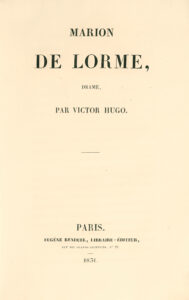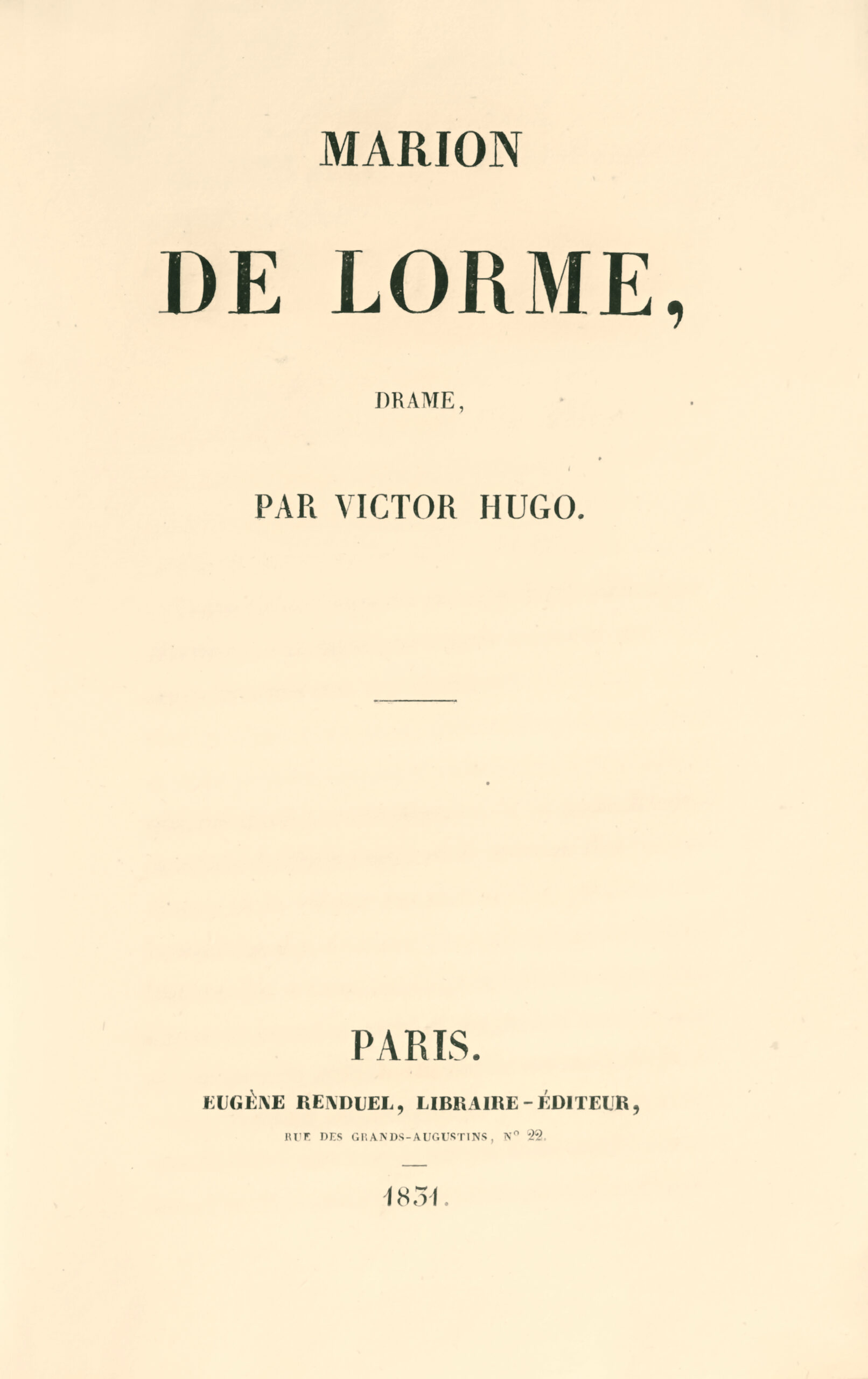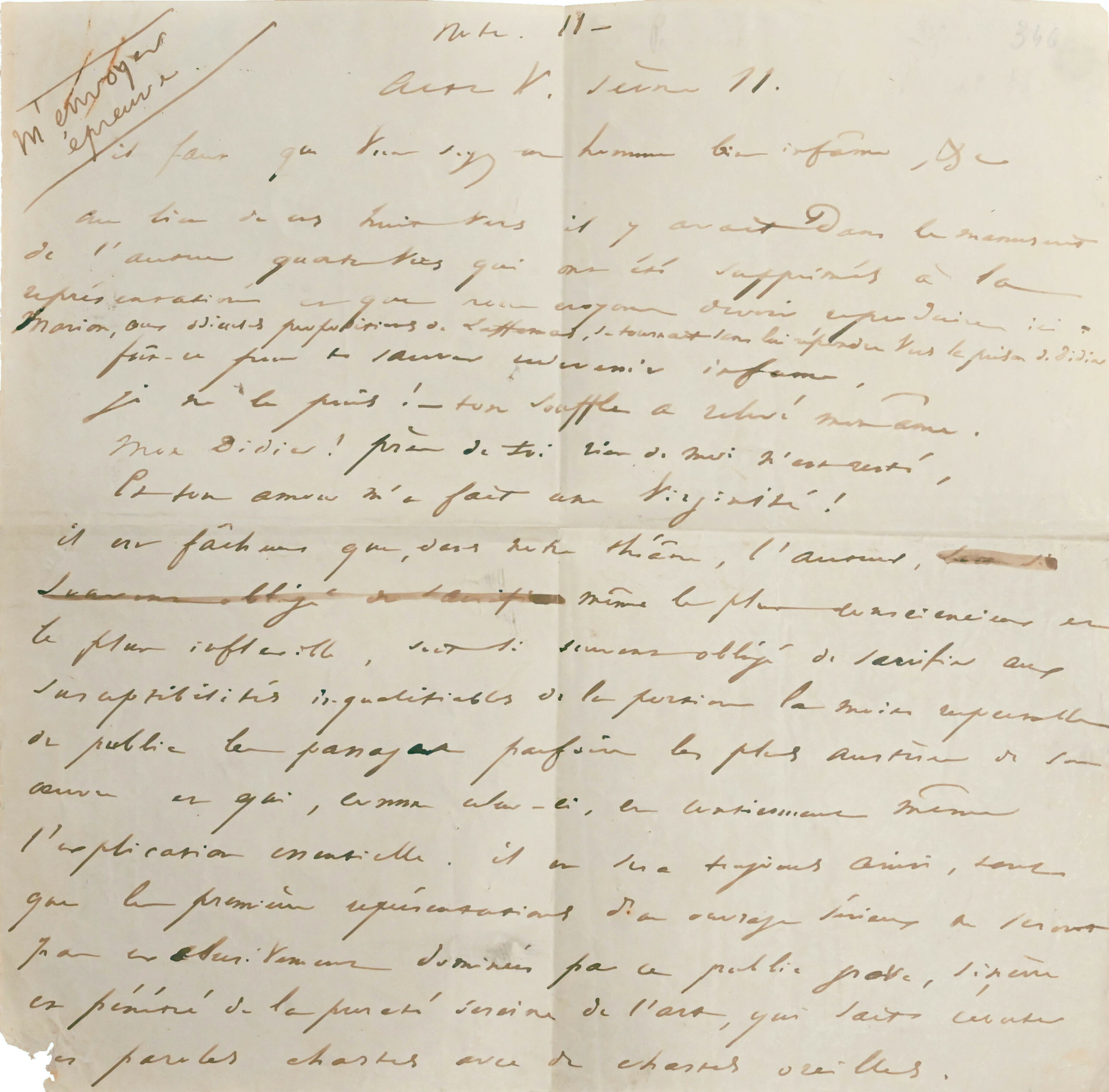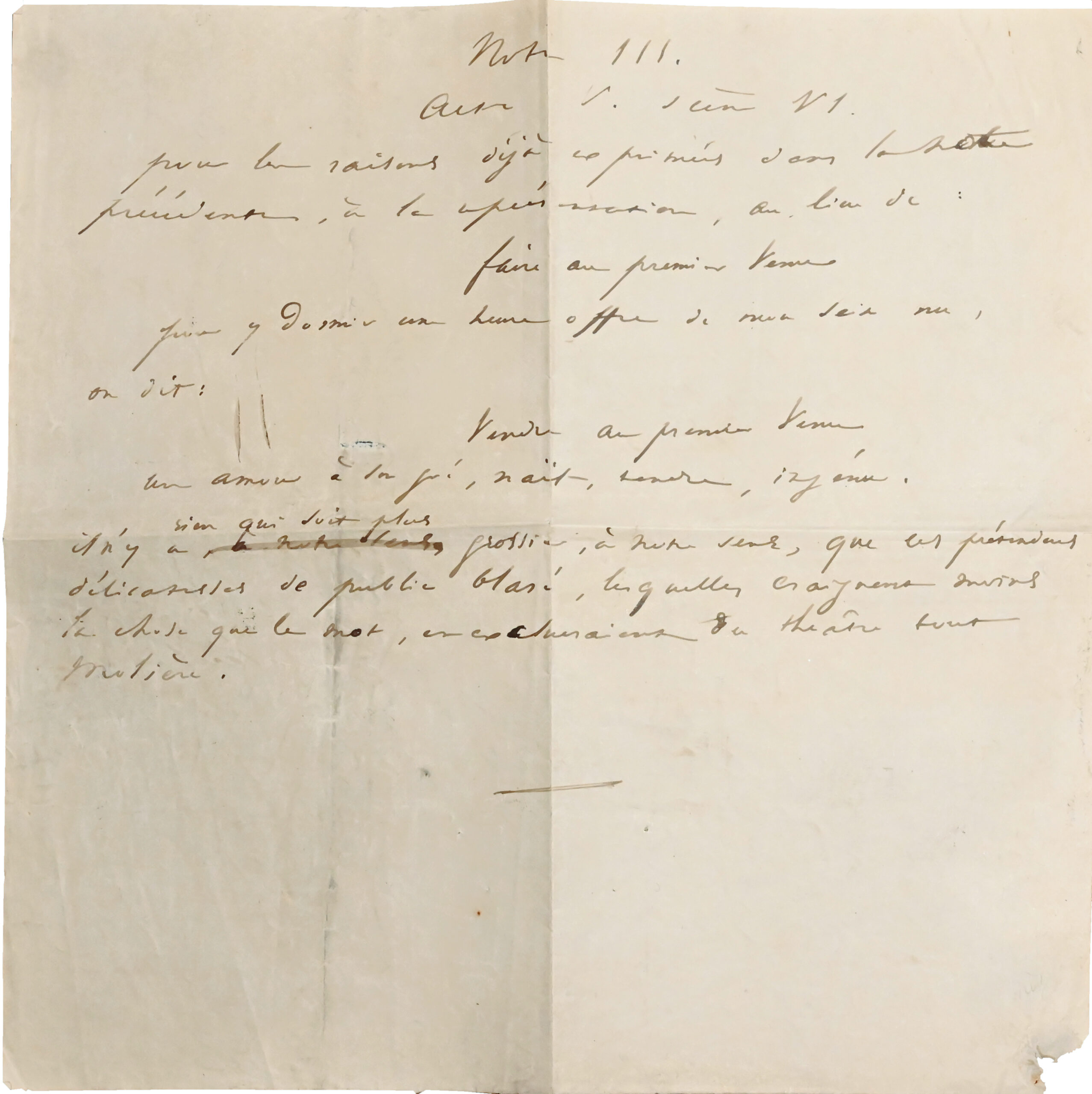Paris, Eugène Renduel, 1831.
8vo, xv pp., 191 pp., (5) pp., fawn Russian quarter-leather, decorated spine, mottled edges. Contemporary binding.
196 x 127 mm.
First edition.
A fine copy in contemporary binding, from the library of Tsarskoye Selo, residence of the tsars, near Saint-Petersburg (stamp).
“Important first edition rare in fine condition” (Carteret, I, 403).
Attached is an autograph manuscript by Victor Hugo (2 pages 4to) modifying a passage from Act V, scene two. The poet has noted in the margin: “m’envoyer épreuve. ” (“send me the proof”).
This correction was not retained in later editions.
Marion Delorme is a five-act drama in verse, performed at the Porte Saint-Martin Theater on August 11, 1831. The play, completed in 1829, was entitled Un duel sous Richelieu. The play was banned by the censors, who saw in the character of King Louis XIII an allusion to the reigning monarch, Charles X. Marion Delorme was one of the most beautiful and smart courtesans to hit the headlines in the 17th century; Hugo drew inspiration from the character, transposing it to the realm of Romantic poetry. In the drama, Marion, now Marie, leads a solitary existence, purified by the respectful and chaste love of Didier, a mysterious gentleman always dressed in black, melancholy yet confident in Marion’s purity. His chivalrous love leads him to cross swords with Marion’s former lover, the Marquis Gaspard de Saverny, who was indelicate enough to remember her when he recognized her. The duel is interrupted by the arrival of the Cardinal’s guards, who arrest Didier, while the Marquis escapes by pretending to be dead. Richelieu, the sworn enemy of the King’s musketeers, who were inveterate swordsmen, had ordered the death penalty for anyone caught with their weapons drawn, so Didier’s fate was decided. Marion helps him escape, and the two lovers mingle with a company of itinerant actors. Laffemas, the Cardinal’s spy, recognized Marion and easily traced her to Didier and the Marquis de Saverny, who was attending his own funeral in peace of mind. All pleas to the king were in vain; the jester L’Angely managed to obtain a pardon, but the Cardinal had the measure annulled. Marion’s sacrifice to the sinister Laffemas is itself in vain. The two young people must die, and everything is ready for the execution. Moments before he dies, Didier, who had cursed Marion for cheating on him, is suddenly touched by the woman’s despair; he then cries out his forgiveness and love to her in a word that rehabilitates her: “Wife!” The drama is dominated by the figure of Richelieu; in one of the opening scenes, we even witness a literary controversy over the merits of Le Cid (performed in 1636, the year in which the action is supposed to take place). Written six months after Cromwell, this drama is one of the most accomplished and characteristic of romantic theatre; almost none of the motifs considered essential to the genre are missing: impetuous passions, conflicting feelings, mysterious heroes, disguises. Above all, it brings to the stage one of the ideas most dear to the heart of the young Romantic school: the rehabilitation and redemption of the courtesan through the trial of pure love.
A magnificent copy preserved in its elegant contemporary binding, sold for 18,000 ff (≈ €3,000) 46 years ago (1978).





